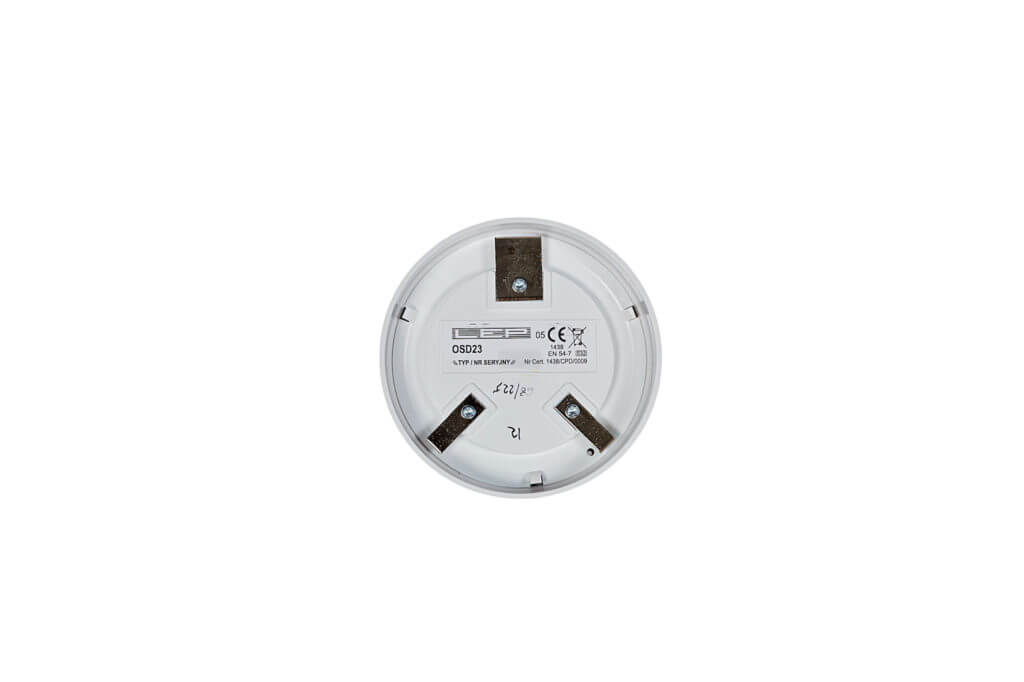Product description (expand/collapse)
The OSD23 optical smoke detector is designed to detect the presence of smoke in the air at the initial stage of a fire. The electrical parameters of the OSD23 detector enable it to be successfully used in fire alarm systems.
The detector is designed to work in confined spaces in which, under normal conditions, smoke, dust and condensation are not present.
The principle of operation (expand/collapse)
The process of measuring the smoke density consists in detecting light reflected from smoke particles, which penetrates into the measuring chamber through the slots in the basket and holes in a special optical labyrinth, which prevents the penetration of light and insects inside the measuring chamber.
The design of the measurement chamber is aimed at making the OSD23 detector resistant to external light, insects and accidental, unimportant streaks of smoke, e.g. from cigarette smoke.
The interior of the chamber is illuminated at intervals of 3 seconds by strong flashes of infrared light, produced by a special laser LED diode set at such an angle to the detector axis – PIN diode, so that the light from the diode does not directly illuminate the detector. Permanently repeated exceeding the smoke threshold of the measuring chamber causes the logic of the detector to switch to the snapped alarming state. The detector logic will not put the detector into alarm if the smoke threshold is exceeded once. Disabling the detector from the alarming state is possible after the detector is completely purged and the power supply is reduced below 2V for at least 1 second.
Technical data (expand/collapse)
| Surveillance voltage | 18V (12V-28V) |
| Surveillance current (average) | 35 μA |
| Surveillance current (max value at start) | 110 μA |
| Alarm current | 18 mA (przy 18V) |
| Working temperature | -22 C to +55 C |
| Relative humidity | 95% at 40 C |
| Detector weight | 150g |
| Working temperature range | -25°C to +70°C |
Files and documents (expand/collapse)



